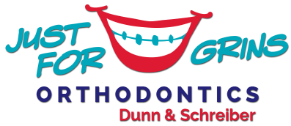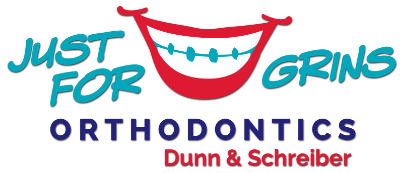Are you or your child new to braces, and you’re learning the ropes? Maybe you’ve filled your fridge with some braces-friendly snacks and you’ve taken a temporary hiatus from the not-so-friendly snacks.
You have orthodontic wax on hand, just in case, and you even have some specialized floss threaders to help you floss under your braces.
Sounds like your fridge and your braces care kit are prepared! But what about your sleep routine? Do you have to make any adjustments to ensure a good night’s sleep?
Here’s what you need to know about sleeping with braces and how they may affect your treatment.
How to Sleep with Braces
Your braces should not affect your sleep too much! On your first few nights with braces, when your teeth and gums are the most tender, there are some things you may want to adjust to prepare for a restful sleep. This is when you’ll feel the temporary effects of your braces.
Once you’ve gotten used to your braces after a week or so, sleeping will be a breeze!
Tip #1: Keep your teeth and gums clean.
Committing to a thorough oral hygiene routine is more important than ever when you have braces. It’s crucial that you clean your gums, clean between each tooth, and clean the spaces between your teeth and braces before you go to bed. By keeping your teeth and braces clean, you prevent any unhealthy symptoms from developing.
Symptoms like inflamed gums, tender gums, yellow teeth, toothaches or bad breath due to poor oral hygiene can be pretty uncomfortable and distracting when you’re trying to sleep. Keeping your teeth and braces clean will serve you in many ways!
Tip #2: Try sleeping on your back.
If you tend to sleep on your side or stomach, try sleeping on your back for a few nights. When you lay on your side and stomach, your cheeks are pressed against the pillow, which can irritate your mouth. By sleeping on your back, the contact between your braces and mouth is minimized, so your cheeks can relax without being pushed against your braces.
If you continue to sleep on your side, that’s okay! You don’t have to worry about any considerable dangers when it comes to sleep position. You may just wake up with a bracket imprint on the inside of your cheeks and some minor soreness that goes away pretty quickly.
Tip #3: Use dental wax if needed.
Dental wax, or orthodontic wax, can come in super handy with tender cheeks or gums. Wax can be placed over any brackets or wires that tend to irritate your cheeks. Before you go to bed, simply pull off a few pieces of orthodontic wax, place them over any brackets or wire ends that need attention – or place some wax on all of your brackets – to give your cheeks some relief.
While you sleep, the wax will provide a comfortable barrier between your braces and your mouth, so you can sleep soundly and wake up rested.
You don’t have to worry about swallowing any wax while you sleep too. Most brands use non-toxic, natural substances, like carnauba wax, beeswax or paraffin wax. Make sure that the brand you choose uses non-toxic ingredients, so if you dream of a juicy burger and mistake the wax for your next bite, you won’t get sick… you’ll just be a little disappointed.
Tip #4: Use Tylenol if you have to!
During your first week with braces, it’s normal to experience some soreness in your gums. If you’ve been eating soft foods and taking it easy on your braces to prevent discomfort, but you’re still feeling some soreness before bed, you can take an over-the-counter acetaminophen medication like Tylenol.
Dr. Dunn and Dr. Schrieber do advise an ibuprofen like Advil if you prefer. Just keep in mind ibuprofen and other NSAIDs can actually slow tooth movement (NCBI).
After the first week or so of your treatment, you should feel good enough to sleep without pain medication!
Need more tips?
At your first visit, we’ll tell you everything you need to know to prepare for your orthodontic treatment! We’ll give you the tips and tricks you’re looking for to help you get a good night’s rest every night.
We provide a number of different types of braces, including traditional silver braces, clear ceramic braces and Invisalign® for teens and adults!
If you’re looking for a top orthodontist in Montgomery, Millbrook or Wetumpka, we’d love to meet you! Request a complimentary exam for you or your child today.



